|
Below, is my little sister doing big things for the world! Well done her. I could not be more proud!
0 Comments
HOMEMADE is a Semifinalist in the $200,000 FOCUS FORWARD Filmmaker Competition and is in the running to become the $100,000 Grand Prize Winner. It could also be named an Audience Favorite if it's among the ten that receives the most votes. If you love it, vote for it. Click on the VOTE button in the top right corner of the video player. Note that voting may not be available on all mobile platforms, and browser cookies must be enabled to vote. Electricity in Malawi is a luxury many cannot afford. Installing a transformer to cater one area can cost up to MK 5,000,000.00 (USD18,000). This is the story of two young men from the village of Nkhatabay, Malawi who through self taught engineering have generated electricity powering more than 50 villages through invention of homeade generators locally designed and made from scrap metals. Director/Producer: Villant Jana Camera: Bwanali Makote Sound: Yamikani Lozi Editor: Villant Jana Music: Firstcom Inventors: Hastings Mkandawire, Jimmy Mzilahowa Location: Nkhatabay, Malawi
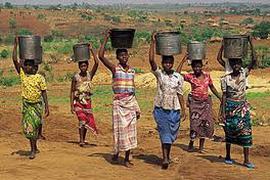 This is the first trip I have taken to Malawi that I can admit I didn't fully enjoy. I am one of Malawi's biggest supporters but I have to be honest and admit that I am losing things to support. Malawi used to be beautiful but our countryside is being severely ravaged by its own people. The two key environmental problems I observed: 1. Heavy deforestation and 2. Frequent small-scale forest and countryside fires I drove from Blantyre to Ku Chawe Inn in Zomba then to Kasungu and back down along the lakeshore road covering over 1,200 kilometres. I completely lost track of the forest fires I saw during the day and at night. Even within Blantyre you constantly smell smoke from burning leaves and cars that should no longer be on the road. This pollutes the air and the scenery. Club Makokola is the only place I found that confirmed they do not burn their leaves. They sweep them all into flower beds and use them as compost. It actually looked strikingly pretty. I wish everyone would follow suit. Malawi doesn't have much in the way of natural resources. What we do have, or used to have, is gorgeous countryside and that is now mostly gone. It's more than sad. I often drive into the British countryside and despite the terrible weather the British countryside is lush, inviting and unpolluted. I have never seen a fire being burnt and developments are controlled to minimise environmental pollution. Malawians in Malawi, why are you sitting by the wayside and allowing your country to be destroyed? Is barren countryside what you aspire to leave your children? The poor may claim to need firewood but why aren't they replacing the trees they fell? The soil is very fertile; there are seeds everywhere. Plant trees and use fallen leaves as compost. When you've cut down all your trees what will you do then? Die from hunger and starvation, that is what. This does not have to be a Government-level problem. Everyone needs to take some responsibility. Replace trees that have been felled! Amongst many problems, missing trees means less carbon dioxide is removed from the environment and any strong wind becomes a sand storm. If our country can't match the beautiful scenery of other African countries we can expect even fewer tourists and even less forex than is currently available. I can't believe people don't see the wider repercussions of deforestation and burning fires. Honestly, do you need a degree to see these things? It's time for action. Wake up. Stop sleeping, beer-drinking or whatever it is you do in your spare time, start planting trees and stop burning fires! As you watch this destruction keep in mind that the Sahara Desert was once a forest and we are very much moving in that direction. You've been warned!
 We cannot compete on an international platform because: 1. Our pricing is out of kilter 2. We're too bureaucratic PRICING Every time I want to hire a consultant for anything, British prices are always higher than American, Canadian and of course, Asian. On top of that, there's this 20% VAT thing which completely makes a good price look stupid e.g. my email marketing company quoted me £600 and then I get a bill for £720 - wtf? Oh, it's VAT, sorry, we forgot to tell you about that. Like seriously, you didn't think that would be a significant thing to mention in all our discussions? Luckily, I hadn't signed the contract yet - but I did! BUREAUCRACY Businesses need to be willing to negotiate and they need to make decisions fast to compete on an international platform. For instance, when I was selecting a developer for my app, Fat Creep, the British contender would say stuff like "I have a meeting with my partner on that this afternoon". I don't give a monkeys about your meetings, I need a decision now! The Asians would take things away and respond extremely fast. At what level can Britain compete? Primary industry i.e. agriculture etc, we don't have the land and the weather is not amenable to the growth of very much. We cannot compete well here. Secondary industry i.e. manufacturing, America is a developed economy just like Britain but input prices are way lower - how do you explain that? People are able to start making a product so much more easily than you can here. Are the British just too darn greedy? Why can't they cut their pricing to match America? Tertiary industry i.e. services - this is where we should be able to compete! However, I took a brief look at the many resources I now use as an entrepreneur related to technology and they are mostly American!! My email management tool (mailchimp), my webhost (weebly) and all the artists I have hired to do pictures for me. My accountant had to be British but even what he said was a cheap price for his services made me feel a little screwed. I haggled, of course, because my name wouldn't be Heather if I didn't! A successful business, even one with only a single full-time employee depends on so many other suppliers. Every business receipt represents a supplier, I want to use British but I'm sorry, right now they need to jack up - big time!
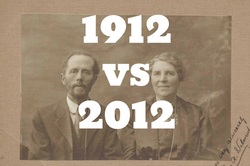 I'm currently reading A Short History of Nearly Everything by Bill Bryson and realising that there are many practices that we now think of as new that are actually darn old: 1. Self publishing Lots people that wrote books self-published them or funded the printing in days gone by. Some lost a fortune as a result. What we now accept as the "traditional" publishing system actually replaced self-publishing and we've now come full circle. 2. Working past retirement Most people stopped working when they died or when they simply didn't have the physical capacity to. This was especially true amongst the educated classes - they worked for the joy of working and discovering new things. They were many tinkerers. Seeing retirement as a time when you completely stop work and get paid money anyway only came in post-world war 2. Regulators decided it was humane and fitting for the "civilised" world to give the elderly a break. It's an ideal situation that is in fact completely untenable. To support retirees you would need an ever increasing class of working people; with the decline in both birth rates and death rates this won't happen. 3. Working from home Many scientists in the old days worked from home. I imagine they rolled out of bed at 5:00 or 6:00 a.m. and continued where they'd left off the night before. Now we're trying to revert to this old way of working - funny. Admittedly, you will find that many early scientist came from privileged backgrounds and were unbound by the need to earn a living wage. 4. Being a jack of all trades A lot of entrepreneurial literature talks about how the ease of technology means the same person can do lots of previously "specialised" tasks. This is true but people in the olden days didn't specialise either. They didn't have the advantage of all this technology we now have but they all dabbled in a multitude of trades. If you look at profile of distinguished people of old you'll frequently see "Biologist, Chemist", "Writer, Geologist". Amongst the writers you'll find many people that wrote books on very different topics - "Economics, Psychology, Beauty". On the other hand business schools also espouse the benefits of focusing on just one business. Personally, I think the idea that you'll do better if you just stick to one thing is complete rubbish. If you've got four start ups on the go because you simply want to make money you'll probably fail. If you've got four start ups because you're passionate about all them and are committed to consistently producing some output for all based on a focused schedule - that's a successful result in itself. Next time you're confronted with a new idea, know that it might just be an old idea coming back.
 This blog is inspired by Christopher McDougall's book, Born to Run Until today, I always believed that women sat around tending to the kids as the men went out hunting and "brought the bacon" home. I don't think I learnt this at school, it's just one of those things I knew, you know - "general knowledge". Then, as I was reading Born to Run I learnt that scientists can almost conclusively say that when we were hunter-gatherers the women were part of the chase. For instance, in most mammals, the male is much larger than the female. In human beings on the other hand, the male is on average only 15% larger than the female as we're both designed for the same function: running. Our small nimble size is ideally suited to long chases. Human beings are designed to endure very long runs in pursuit of their prey - meat for food. I once read of a woman who had a baby and went out to complete a marathon the very next (or same) day. I thought she was mad but apparently it's not so crazy. Hunter-gatherer women were exactly the same way; running was not some big thing that you had to go and do. It was a way of life - something you did everyday, kind of like waking up and watching TV in today's world. Is there any evidence for this way of life? In fact there is. Modern societies and the digital revolution remain very new. Hunter-gatherer societies still exist. The Mbuti or Bambuti pygmies in the Congo maintain their hunter-gatherer way of life. Both men and women gather and forage. When it comes to hunting for meat, the women and children take part by 'driving the prey into the nets' (Wikipedia). 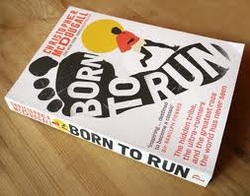 This driving the prey into the nets is made to sound like a light activity but it's actually a wild chase of man versus animal that can last hours at a time. A group of 6-10 people collectively target and outrun a deer until it's tired out. When they catch it, the kill is taken back to the community and shared collectively. The Mbuti live in groups of 15-60 and total 30- to 40,000 worldwide. They have developed hunting boundaries so that one group doesn't impinge on the ground of another. I expect that this is as much for sustainability as it is for maintaining the peace. Ultimately, people who live this sort of nomadic lifestyle live as one large family. Everything is shared. I kind of envy this way of life. In modern society it's every man for himself: eat or be eaten. On the issue of running. There is an ultra running competition every year, the Leadville Trail 100. Ultra running is running on very rough terrain, on routes where cars can't pass. It's been found that although men can out-sprint women over short distances, when it come to ultra races like the Leadville, 90% of women finish but only 50% of men do. The book didn't drill down on why this phenomenon exists but it serves as further evidence that we were both designed to persevere and persist over hard terrain for long distances. Born to Run is a book about running but I decided to zone in on the issue of women for this post. I have reviewed the book here and written more about the book from a different angle in these posts: I highly recommend this book.
To do what you want rather than what makes you money is a luxury preserved for the privileged few12/2/2012  If you know someone that says this it is more than likely that they grew up in a well-to-do home and never knew ‘want’. They see their ‘socialist’ views on life as something that sets them above other people, but seldom do these sanctimonious individuals pause to acknowledge how much of a privileged position they are in. Most people do not have the privilege to follow their hearts. To do so would be selfish and indeed self-indulgent. Money is not evil, it is an enabler, having a little money can be the difference between dying and having a few more breaths on this earth. I grew up in a poor country and was naturally frequently exposed to poverty and want. Yes, I fully acknowledge that I was raised in a relatively wealthy family but when you come from somewhere as poor as Malawi, that doesn’t mean you’re completely sheltered from the vagaries of misfortune. Fortunately for me, the things I enjoyed in life steered me towards a career that earns decent money. If for some reason I decided to follow a self-indulgent path that did not earn money, I would at the same time be taking myself off the path that would enable me to one day contribute in real, monetary terms to my family and to my country. Yes, you can contribute in non-monetary terms but I dare you to say that to the mother that hasn't been able to feed her children for two days. When you're poor, money to purchase food and shelter is all that matters. It consumes your every thought and effort. The needs of my own life are simple and I continually try to temper them. My biggest fantasy for when I have a real amount of money is to build a series of little libraries in Malawi because it is only through study of the written word that people can gain freedom from poverty. Most people in Malawi and indeed in many poor countries follow the path that makes money because they don’t have the choice. They need and want to help their family. The money they earn frequently goes to help with the school fees of siblings and to purchase medical supplies for any family members that are sick. Most poor countries cannot afford a state funded medical system. Free education if it is available is frequently atrocious, you wouldn’t wish it on an enemy let alone a loved family member. I know many including Steve Jobs proclaimed that you should follow your heart not money. I agree that this is an ideal position but most lives are less than ideal. Your family are the only people that love you unconditionally. The more selfless amongst us put our families first and ourselves last and in many cases if given the choices: 1) low-income fulfilling career but unable to contribute towards the extended family or 2) high-income less fulfilling career but able to contribute towards the extended family Most people would choose option two because they have to. So, for those that are fortunate enough to come from a background where they don’t have to make this choice, please stop being so self-righteous and count your lucky stars.
Agreed. We Malawians are a very unique, funny, high-spirited and optimistic bunch. Today, is my one monthiversary and I have decided to give a tribute to the awesome motherland by linking in this video from Kiwiz007.
What comes to mind when you hear the phrase “keeping up with the Joneses”? Do you visualise a dissatisfied couple purchasing items they can scarce afford in an attempt to appear as though they are of the same status as their neighbours? Do you sneer at the thought of the type of person who seems to ever want what their neighbour has, never satisfied with their own possessions? The recent riots in London have divided people along two key lines of argument: those who think that inequality of opportunity has left the youth dissatisfied versus those that argue we’re raising a generation of morally bankrupt individuals; kids lacking in scruples because they have grown up in homes where parents are unable to properly discipline them for various reasons including Government regulation; inadequately supervised because their single parent has to work all hours of the day to make ends meet; council estates where it’s cool to be “bad”, and so on and so forth. I think there’s a lot of water in the former argument, that of inequality. I recall a certain example from my Development Economics lessons in university; I don’t know who to attribute this to because I honestly don’t remember. The example went something like this. Imagine you’re stuck in a traffic jam on a dual carriageway or any other two lane road; you’re tired and exasperated of waiting when you see the other lane begin to move. Initially, you’re happy because if that lane has started moving then soon yours will too. However, to your chagrin your lane stays put well after the other lane has achieved a steady flow. So what do you do? You try to cut into the other lane by any means possible. If they're moving, you feel entitled to also start moving, it’s not fair otherwise. You can’t see the obstacles that have been circumvented to clear up the bottle neck in their lane but for you, that is beside the point. Think of the lane with moving traffic as the rich in society and the lane that is not moving as the poor. The poor see the rich getting richer but for themselves, they see no way out. A poor education locks many out of lucrative professions; the “wrong” social networks can mean that whilst a well-connected person merely needs to make a few phone calls to secure an internship others don’t even know where to start with regards to securing professional internships. So what do you do? You want the same things that everyone else seems to have: the iPhones and Blackberries, the MacBook Pros and Ralph Lauren sweaters. You turn to crime or to the credit card. I would not recommend credit card fuelled consumerism but that is the solution some choose. Nor would I recommend crime obviously. So there has to be a third path. The majority of those that were rioting probably can’t get approval for a credit card; they are young without a credit record or even a steady job. It is so easy to think of them as thugs without scruples and if I had been directly affected I probably would be saying exactly that. However, from the perspective of an outsider looking in, all I can say with certainty is that there is something very wrong when large mobs think it is okay for them to destroy and loot small shops or any shops. The factors underlying each person’s motivations are probably mixed, complex even. Bar the odd kleptomaniac and the mentally unstable, nobody that has something to lose would risk it by stealing and bashing shop windows. We consequently need to start from that point: eliminating the existence of a large class of people that feel they have nothing to lose, that they have no hope.
I booked an appointment to have my boiler fixed by my gas supplier, then needed to reschedule because I decided to go away that weekend. When I called they said I couldn't have a weekend appointment as there were none available for two months. Okay fine. "Well, if you're going to come in the week can I get the first appointment on any morning? That way I can just tell work I'll be in late." "I'm afraid we can't guarantee that also, we don't have morning appointments for a few weeks, it will have to be an afternoon appointment." I decided to risk it and book an appointment anyway with a request that the engineer call me an hour in advance of his arrival so that I could dash home from work. The date of the appointment came and did I get a call? Yes, but only when the engineer was knocking at my door. Sigh. I should just be eternally grateful that I wasn't charged for missing the appointment. This situation is not unique. A colleague recently failed his driving test and there wasn't a slot available to retake the test for another two months. Time and time again big companies disappointment with their lack of flexibility. An inability to deliver goods on weekends and to customize services to the customers' needs is a pervasive problem in Britain. In some industries bureaucracy and high sunk costs ensure that companies can continue to be complacent in this way and that is a problem. It's at times like this that I miss Malawi. If you need any sort of basic service like an electrician, a plumber, a painter or whomever, you can get it within a couple of hours provided the funds are available. There are many independent traders whose ability to feed their families is contingent on their volume of work and so they will happily make themselves available as and when their services are needed. The separation of ownership and management in publicly listed corporations has some unsavoury consequences and a reduction in corporate limberness is just one of them. I was very amused by a recent story. Another colleague's father went to the US and needed to pass the American driving test. He failed the first time and asked the instructor when it would be possible to take the test again. The instructor said swipe your bank card and you can retake the test. This process was repeated four times before the man actually passed. That's what I called commercial agility and this sort of adaptability may indeed be an example of how the US keeps ahead of other developed economies. This got me thinking about some of the factors that limit economic growth and I thought that in the absence of flexibility, productivity and revenue potential will be limited. If you cannot work around your customers you will definitely lose some customers along with the income that they would have contributed. Some companies need to wake up to this fact or face being stuck in the doldrums or worse being booted out by a new outfit that can cater better to the needs of the modern consumer.
|
Archives
December 2015
Categories
All
By Heather Katsonga-WoodwardI'm always thinking, debating, considering and revising my views - some of those deliberations will be shared right here. |



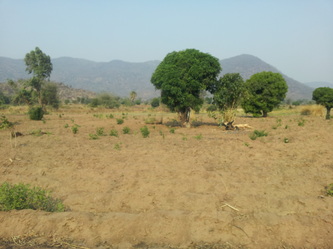
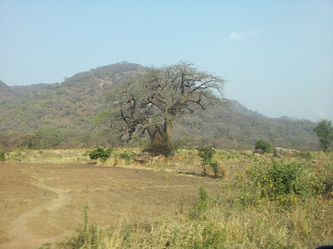
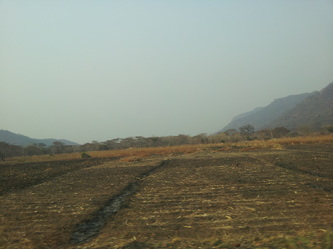









 RSS Feed
RSS Feed
